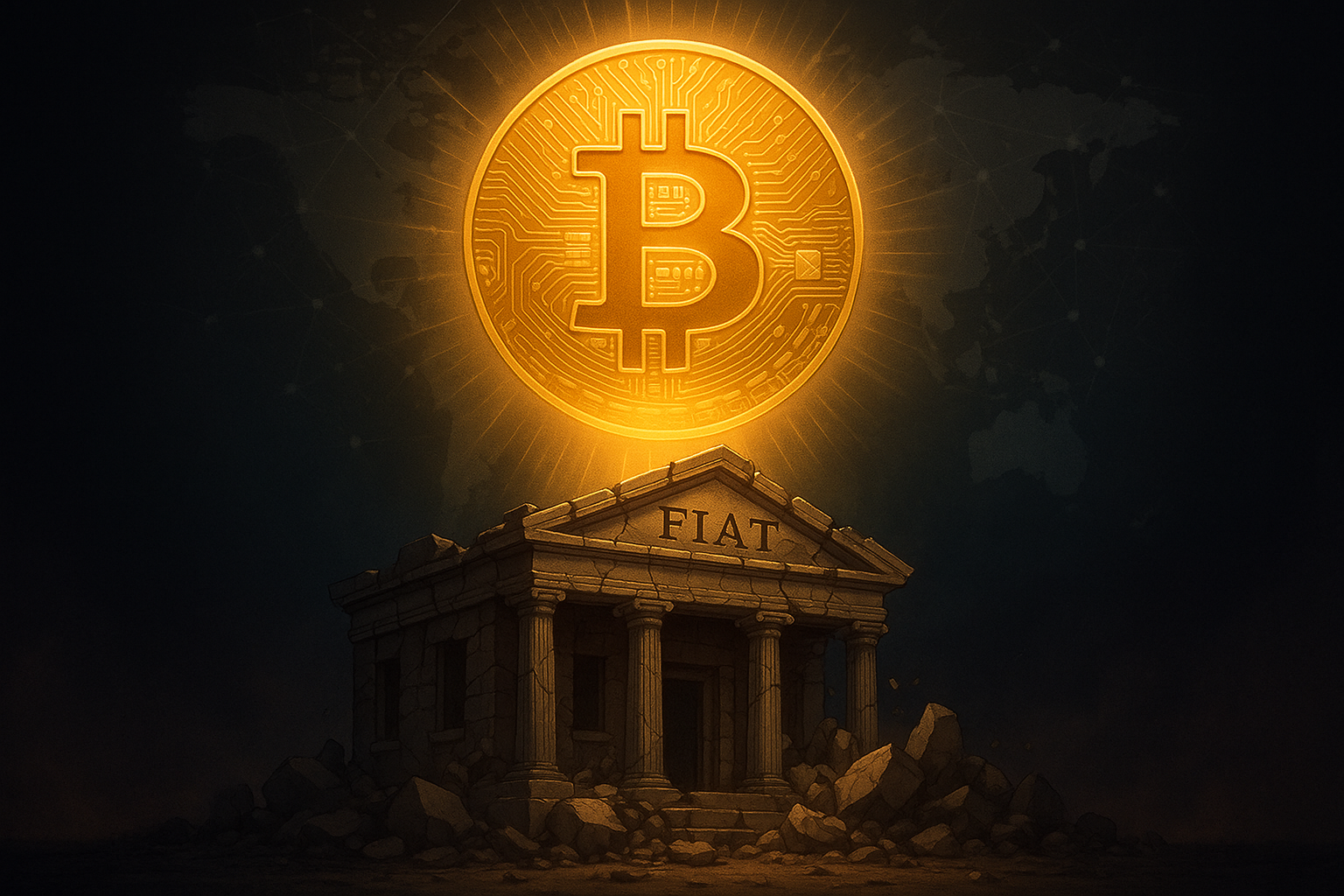
Why Bitcoin Isn’t Just Another Currency: It’s a New Monetary Foundation
Bitcoin is often mistaken for just another digital asset or speculative bet. But if you pause and look closer, a much more ambitious vision becomes clear.
Bitcoin isn’t here to patch the system we have. It proposes a completely new foundation for money, one that is neutral, transparent, and resistant to corruption.
To grasp the significance, we need to understand how Bitcoin works and why that difference truly matters.
What Is the Bitcoin Standard?
The Bitcoin Standard imagines a monetary system backed by Bitcoin, similar to how the world once used gold. But unlike gold, Bitcoin cannot be centralized or physically seized. Economist Saifedean Ammous describes Bitcoin as digital sound money for the modern world.
- Scarce: Only 21 million Bitcoin will ever exist.
- Hard to produce: New Bitcoin enters circulation slowly through mining.
- Predictable: The issuance schedule is fixed and fully transparent.
These traits give Bitcoin the monetary discipline fiat lacks. They protect against inflation and political manipulation, the very forces that undermined gold’s role in the 20th century.
Better Than Gold?
Bitcoin is often called “digital gold,” but that description undersells it. Gold is difficult to transport, hard to divide, and relies on third parties for authentication. Bitcoin solves all three:
- Portable: Move any amount globally, in minutes, with no intermediaries.
- Divisible: One Bitcoin splits into 100 million satoshis for micro-payments or global trade.
- Verifiable: Anyone can confirm its authenticity using open-source software.
It offers the benefits of gold without the limitations. It enables fast, trustless settlement in a digital world where speed and certainty matter.
Decentralized and Global
Bitcoin runs on a decentralized network of nodes, not governments, corporations, or banks. This eliminates single points of failure and ensures that no one can unilaterally change the rules. As a result:
- No one can inflate it: The monetary policy is set in code, not by committee.
- No one can censor it: Transactions are validated by consensus, not authority.
- Anyone can use it: All you need is an internet connection and a wallet.
This makes Bitcoin especially powerful in places where inflation, capital controls, or government restrictions threaten everyday life. In countries like Argentina, Lebanon, and Nigeria, Bitcoin is not just theory — it is survival.
From Store of Value to Global Money
Today, many use Bitcoin as a store of value, a way to protect purchasing power. Over time, with better tools and broader trust, Bitcoin could become a true medium of exchange and unit of account. That evolution could unlock:
- Everyday transactions: Peer-to-peer payments without banks or borders.
- Transparent pricing: Goods and services priced in sats, not inflated local currencies.
This transition mirrors what gold never achieved at scale. Bitcoin has the potential to become both a reserve asset and functional money, while maintaining trust, transparency, and user control.
Final Thoughts
Bitcoin is more than a new form of money. It represents a peaceful revolution, a voluntary exit from systems built on debt, dilution, and centralized control.
It aligns incentives using math, not promises. It offers financial sovereignty through open code, not political permission. It empowers individuals with a tool that cannot be seized, censored, or debased.
From scarcity comes abundance. That’s the promise. That’s the power. That’s Bitcoin.
